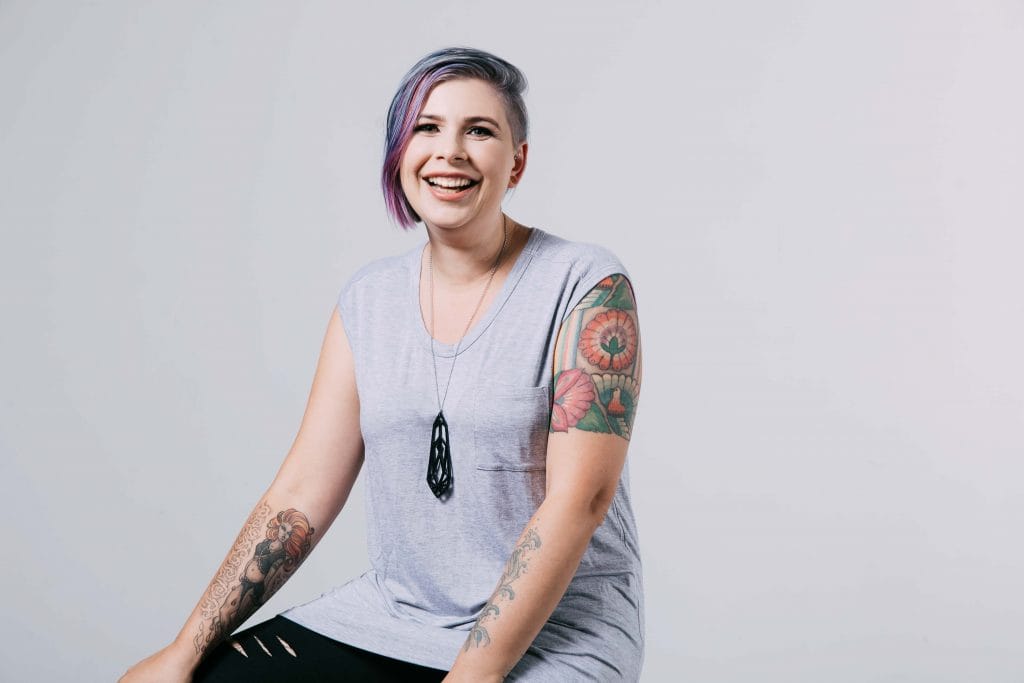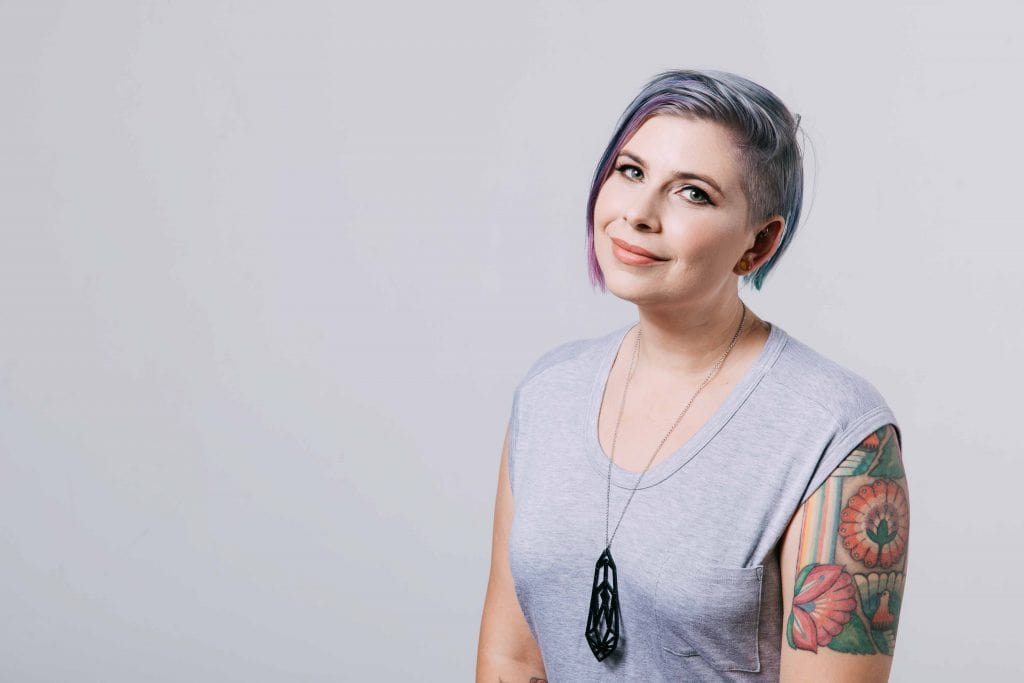We look forward to connecting with you.

Andi Smiles is a bookkeeper extraordinaire turned online entrepreneur and educator. This Bernal resident is passionate about coaching small business owners to understand their business finances. You can read more about her online classes in a past post called, 7 Online Classes That Will Transform Your Small Business Finances.
With a full load of bookkeeping clients, but no website, Smiles saw the potential of the online world and started a blog. She began by providing people with detailed content about setting up their books. She wrote about maintaining healthy bookkeeping habits (before it’s tax time) and recommended tools to help simplify tasks.
In the process, she saw that people were hungry to hear about the emotional side of money as they were about learning bookkeeping 101. While working with hundreds of clients and looking at her own struggles with money a few things emerged. The first is that everyone has the ability to be good with money. There are external and internal factors that get in the way. Second, unless we examine these issues, people resist the processes to create healthy money habits.
Andi talked with us about her role as a champion of small businesses and soloprenuers. And how she helps them become financially literate and more aware of their relationship with money.
Would you give us some background about how your business started?
My business grew organically. I taught myself QuickBooks when I had a boss who didn’t want to hire an accountant. I was her admin and she said, “Oh just learn QuickBooks and do my bookkeeping.” So I did. Then, when I transitioned out of that job, my next boss also wanted someone who knew QuickBooks. It was her CPA who started referring clients to me. She told me, “Wow, you’ve done a great job, I have other clients who need you.” My business grew through word of mouth to the point until I was completely booked out.
Up to that point, I didn’t have a website and didn’t do any marketing. All my clients were through referrals. Most of them from accountants and tax preparers who were happy with the financial information I provided. I built my practice like that until I couldn’t take on any more clients.
That’s when I started to think about other avenues. Around the same time, I was getting asked by people to teach for their online programs. This sounded interesting to me, so I started as a guest on people’s programs.
Then I decided to put my business online and start a blog. I created my own resources, materials, and mini-courses.
What has shaped your approach and teaching style the most?
I realized early on that I had already been teaching my clients informally over the years. I understood what they needed to know about their finances and watched their habits so I could explain things in a way that made sense to them. Teaching was something I was good at and I really loved doing.
It’s been an amazing experience to see how people have responded to my materials. People have sent the most heartfelt emails. They say things like, “This is the first time I’ve ever understood this stuff. Or, “Wow, I’ve been so overwhelmed by all the information out there and you explain it so well and you’re encouraging.”
I teach in a way that’s really informal. I don’t use typical accounting terms and if I do, I explain them in a way people can understand. I use a lot of metaphors and humor in my teaching. I purposely try not to be so serious, because money is such a serious issue for most people.
Someone once said to me, “I love that you don’t assume what we already know.”
This is a big issue with financial professionals. They make a lot of assumptions about what people should know. They’ll say, “You need to do your bookkeeping regularly.” But what does do your bookkeeping mean? Most people don’t even understand what that means. Same with, “Send your tax preparer everything they need for your taxes.” What’s everything they need?
It’s an issue with this industry.
They make a lot of assumptions about what people should know. And the average small business owner, especially the newer one, is lost. And that’s ok; because who are they supposed to ask?
So I try to get as detailed as possible. I don’t assume that people know what, “do your bookkeeping” means.
When I started my business, I was a bookkeeper who didn’t do her own bookkeeping. I knew all the processes but I had my own emotional baggage around money. I refer to myself as a “recovering hot mess.” Because for many years my business finances were a mess.
What’s changed the most as your business has evolved?
The biggest change is that in the beginning, I focused more on the technical side of managing your money. I thought about the emotional side a lot, but I didn’t believe people really wanted to hear it. I thought they wanted more of the how-to, technical stuff.
Then, I experimented with putting out some content that talked about the emotional side of how you relate to your money and how it affects your business.
And I got really positive responses. People wrote back saying, “Thank you so much for bringing this aspect into it.”
That’s when I went public with my beliefs that there’s a very clear emotional side and it’s not all practical. So as my business evolved, my brand message became clear. It’s all about understanding your emotions around money is as important as understanding the A,B,C’s of bookkeeping.
That’s the container of everything I do. And I believe that everybody can be good with money. Everyone has the ability. There are just knowledge gaps or emotional blocks or wounds that need to be addressed. That’s the core of my belief system, my mission, and my values.
What personal growth work have you done around your finances to get your business in shape?
I did a lot of my own healing work. In the midst of building my online business, I went to coaching school. That gave me the tools and language to see how the process works. Before, I had been doing it on my own intuitively. Then, in my coaching program, I started to understand the healing process on a greater level. And I started applying that to money.
I call it “money wounding.” My own money wounding was showing up in my business. I had to look at that and ask, “What do I need to change about the way I relate to money to do these processes.”
I can teach somebody how to do their bookkeeping. But if you have an emotional resistance to it, then it doesn’t matter what I do for you. The practical and technical stuff will only get you so far. The real transformation lies in looking at the emotions surrounding it. And too often we focus on the practical and technical and not on the emotional side. This method shapes the way I do all my work, especially my teaching.
You can find Andi and all her great resources at:
website: AndiSmiles.com
Pinterest: Andi_Smiles
Facebook: Andi Smiles @bffcourse
Read the blog: 4 Reasons You Think You’re Bad at Money That Are Totally Wrong
Photos Courtesy of Andi Smiles
Jen Baxter is a content writer and strategist helping companies craft the story of their business online. You can find more of her work at JenBaxter.com


